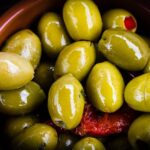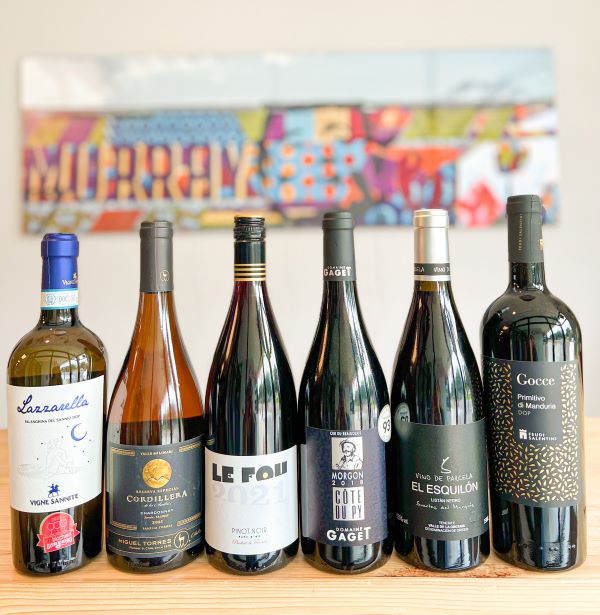Introduction
Known for its rich history, breathtaking landscapes, and sun-kissed beaches, Greece is a destination steeped in historical richness. However, there is an often-overlooked element of Greek culture that has been fermenting for centuries and is now ripe for discovery – its wine. As the land of Dionysus, the god of wine, Greece boasts a viticultural history dating back over 4,000 years. If you’re travelling in this enchanting country, your trip wouldn’t be complete without delving into its exceptional wine offerings.

What is the History of Greek Wine
The origins of Greek viticulture are as old as its pantheon of gods. Wine played a crucial role in ancient Greek society, featuring in religious ceremonies, trade, and everyday life. Greece’s unique soil, diverse microclimates, and indigenous grape varieties result in wines that stand as testament to this rich history, offering an unbroken link to its past. Today, Greek wines are making a global resurgence, redefining the country’s winemaking potential while staying true to traditional techniques and native varietals.
Santorini and Its Crown Jewel, Assyrtiko
Known for its spectacular sunsets and stunning caldera views, the volcanic island of Santorini also has an explosive offering of wines. Where the mineral-rich soil and unique climate help shape its most celebrated wine – Assyrtiko. This full-bodied white wine is characterized by a distinct minerality, balanced acidity, and complex flavors of citrus and stone fruits. Drinking a glass of Assyrtiko while watching the sun dip into the Aegean Sea is an experience that captures the essence of Greek beauty and tradition.
The Awakening of Cretan Viticulture: Vidiano
Greece’s largest island, Crete, has been crafting wines since the Minoan civilization. In recent years, the island’s viticulture has experienced a resurgence, with the indigenous Vidiano grape leading the charge. This aromatic white grape produces wines reminiscent of Viognier, exhibiting full-bodied profiles with nuances of ripe peaches, apricots, and aromatic herbs. It pairs perfectly with fresh seafood, providing a gastronomic journey into Greek island life.
Naoussa: A Homage to Xinomavro
The terroir of Naoussa in the Macedonia region of Northern Greece serves as the perfect canvas for the cultivation of Xinomavro, one of Greece’s most revered red wines. Xinomavro wines are characterized by their high tannin content and robust flavors, encompassing red fruit, tomato, olives, and a touch of spice. As these wines age, they develop a more complex palette, revealing layers of dried fruit, tobacco, and leather. A must-try for red wine lovers seeking a unique Greek experience. Looking for Greek wines to try? Check out Decanter’s article Xinomavro: 12 award-winning Greek wines to try.
Nemea: The Land of Agiorgitiko
The region of Nemea, nestled in the Peloponnese, offers the famous Agiorgitiko, also referred to as Saint George’s grape. This versatile red grape is used to produce a wide array of wines, ranging from fresh and fruity to complex and aged versions. The aged styles often boast rich flavors of dark fruits, chocolate, and baking spices, with a velvety tannin finish that leaves a lasting impression.
Samos: The Sweet Seduction of Muscat
If your palate leans towards sweet wines, the island of Samos in the eastern Aegean Sea has a delightful offering in the form of sweet wines made from Muscat grapes. The warm, sunny climate of Samos produces lusciously sweet wines, carrying enchanting aromas of oranges, honey, and floral notes. This is the perfect pairing for Greek desserts like baklava or galaktoboureko, promising a dessert experience that is pure Greek indulgence.

The Wine Routes: A Journey into Greek Viticulture
The Greek wine routes offer an immersive way to explore the country’s winemaking regions. Each route is a picturesque journey through vineyards, wineries, and historical landmarks. As you travel these routes, you get the chance to taste the region’s wines, experience its culture firsthand, and dive deep into its history. From the Macedonian Wine Roads to the Wine Roads of Epirus, Thessaly, and Crete, each route has a unique story to tell, reflecting the rich tapestry of Greece’s winemaking tradition.
Greek Wine and Food: A Divine Pairing
Greek wines are more than just a delightful drink; they’re a key element of the country’s culinary tradition. Greek cuisine, characterized by its fresh ingredients and flavorful herbs and spices, is the perfect foil for Greek wines. Whether it’s a crisp Assyrtiko paired with grilled octopus, a robust Xinomavro complementing a hearty moussaka, or a sweet Muscat matching a sticky baklava, Greek wine and food combinations are sure to delight your senses.
Discovering Unique Grape Varieties
Part of the charm of Greek wines comes from the country’s wealth of indigenous grape varieties, some of which cannot be found anywhere else in the world. Beyond Assyrtiko, Vidiano, Xinomavro, and Agiorgitiko, Greece is home to an array of unique grapes that produce equally unique wines.
Savatiano: The Unsung Hero of Attica
Savatiano is the most widely cultivated grape in Greece, particularly in the Attica region surrounding Athens. This white grape variety is the base for Retsina, the traditional Greek wine that’s resinated during the fermentation process. However, modern winemakers have been producing Savatiano without resin, revealing a wine with fresh citrus and apple aromas and a surprisingly full body.
Robola: The Pride of Kefalonia
On the Ionian island of Kefalonia, Robola vineyards can be found growing in limestone soils on mountainous slopes. The wine made from Robola is bright and citrusy, with high acidity and notes of green apple and pear. It’s often compared to Italian favorites like Verdicchio and Vermentino.
Eco-friendly Winemaking in Greece
Over the past few years, Greek winemakers have been increasingly adopting environmentally-friendly practices, promoting biodiversity, and striving for balance in their vineyards. This shift towards sustainable, organic, and biodynamic viticulture is not only better for the planet, but it also translates into wines of greater character and depth.
Domaine Spiropoulos in Mantinia
One of the pioneers of organic winemaking in Greece, Domaine Spiropoulos has been certified organic since 1993. The winery, located in the Mantinia region, is best known for its elegant and aromatic Moschofilero wines.
Domaine Gerovassiliou in Epanomi
Domaine Gerovassiliou, in the Epanomi region, is not only recognized for its excellent wines (especially its Malagousia and Assyrtiko), but also for its commitment to preserving the environment. The winery features a bird sanctuary and a museum dedicated to vine and wine.
The Wrap Up
From the alluring charm of Santorini’s Assyrtiko to the bold complexity of Naoussa’s Xinomavro, the aromatic grace of Crete’s Vidiano, the versatile potential of Nemea’s Agiorgitiko, the sweetness of Samos’ Muscat, and the lesser-known appeal of Savatiano and Robola, there is a Greek wine for every palate.
As the country’s winemaking industry continues to evolve with a focus on indigenous grapes and eco-friendly practices, Greek wines are carving out their own space on the global wine stage. On your next Greek travels, immerse yourself in the world of Dionysus – taste the wines, meet the winemakers, and explore the vineyards. It’s an experience that promises a sense of connection – to the land, to history, and to the people who transform grapes into the nectar of the gods. Want to learn more about Greek wines? Read our article featuring ehe Best Wines in Athens Greece.










